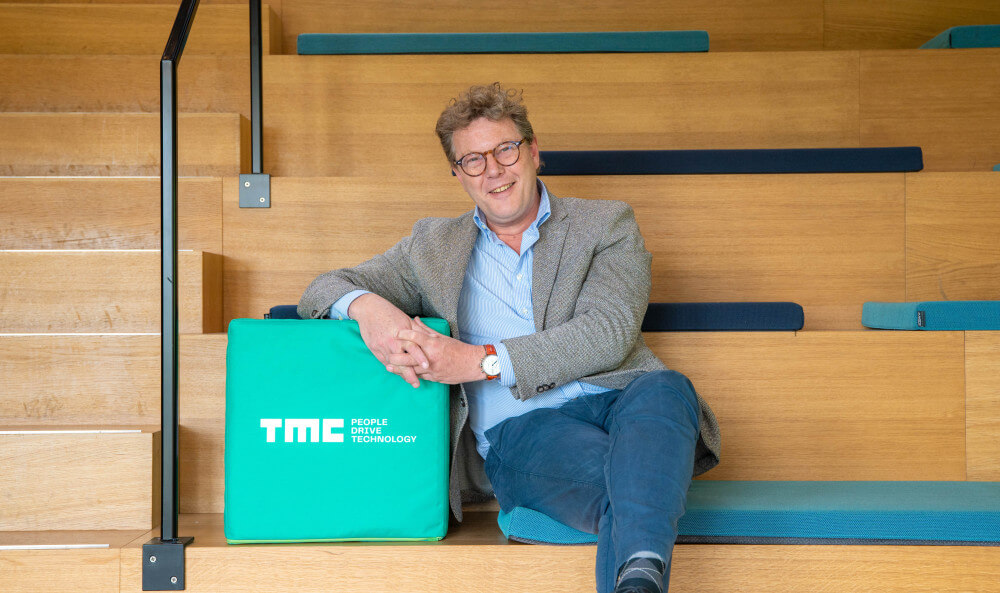![pressrelease_level21[1].png pressrelease_level21[1].png](https://www.themembercompany.com/cache/4462ce0d05b0dcb96e3bd48ef7106e67/pressrelease_level21[1].png)

How the blockchain can help improve Supply Chain Management
Supply Chain Management is not about large planning boards on the wall and order receipts on a stick anymore. It is about data, digital information, and system purity. Digital technology has played an important role in this for decades. Blockchain technology can make the supply chain more transparent and efficient. What are the promises of the blockchain and what are the challenges?
Leestijd: min.More and more, consumers want to know where a product comes from. At the same time, the supply chain is becoming increasingly complex. Blockchain technology makes it possible to trace the origin of all materials in the chain. And this technology has even more advantages, for example less administrative work.
What is blockchain?
The blockchain is often associated with bitcoin and other cryptocurrencies or with NFTs (ownership certificates of digital products). However, the principle of the blockchain can be applied to many more processes, where the supply chain is a good candidate.
A blockchain can be compared to a log in which information, transactions or events are stored. The log is shared with all parties participating in the process. Each 'block' in the blockchain contains information about the transaction with the exact date and time. All blocks in the chain that were previously created, are always accessible. This way, the complete history of all transactions is saved.
The blockchain makes it possible to verify the authenticity of transactions because all users have a copy of the blockchain, so it is not one central database. The data in the blockchain is always validated because all users can check whether their copy of the blockchain is equal to all the others.
Creating a new block of data is called mining. A miner is a user on the network who updates the public log. The other users control the network (automatically).
When creating a new block, one miner (user in the network) can do this work, with the other users just checking the network (automated).
Because the verification is automated and distributed, parties that do not know or trust each other can do business in the blockchain. There is also no central point of failure because all participants have a copy of the log. Such a blockchain does not have to be public. Many private blockchains are only accessible to the parties involved.
Blockchain applied
Wherever parties work together that do not know each other and do not necessarily trust each other, blockchain technology can provide transparency and efficiency. Whether it concerns monetary systems, medical records, or the supply chain.
Take the transport of containers as an example. All kinds of parties and processes are involved in this. Because the payment, administration and transport of containers takes place in separate circuits, the process quickly becomes inefficient. Instead of having each party use its own paperwork or IT system, a blockchain can be used in which all crucial data is recorded. From workflow management and track & trace to the digitization of paper documents such as the shipping documents and the financing of the traded goods.
The blockchain can also offer a solution for the concerned consumer. An example is a Dutch supermarket chain that provides the packaging of its own brand of orange juice with a QR code. Via this code, consumers can see on a website which route a bottle of orange juice takes until it ends up on the shelf. It starts with the orange orchards in Brazil where the fruits are harvested. There it is recorded, among other things, which quality marks the growers have for food safety and sustainability. All these steps are recorded on the blockchain, which also contains information about the oranges themselves, such as the picking period and sweetness level.
In these and other cases, the blockchain has several advantages.
- Everyone in the chain, up to and including the end customer, knows where all the materials come from.
- Less risk of fraud.
- Fewer errors in communication because everyone in the chain has the same information.
- Less bureaucracy and lower costs.
- A better reputation for all companies in the chain through transparency and fewer errors.
The future of supply chain management and blockchain
Blockchain technology is still in its infancy and not all first steps in this area have been successful. The necessary challenges must also be overcome to make a good start. It is thus a completely new way of working in which at least part of the systems and rules used must be replaced. Choosing a partner that offers a reliable and secure blockchain solution can also be a challenge.
Yet these are no reasons to ignore the technology. Supply Chain Management in particular can benefit greatly from technology. The more companies adopt the technology, the more critical mass is achieved and the greater the chance of success in the long term.
TMC envisions the challenge of playing an active role in building blockchain in the supply chain. Would you like to help us build? Please contact Pepijn Rinzema, TMC Supply Chain Management.

Stuur ons een bericht voor mogelijkheden, samenwerkingen of vragen. We komen graag met je in contact!


